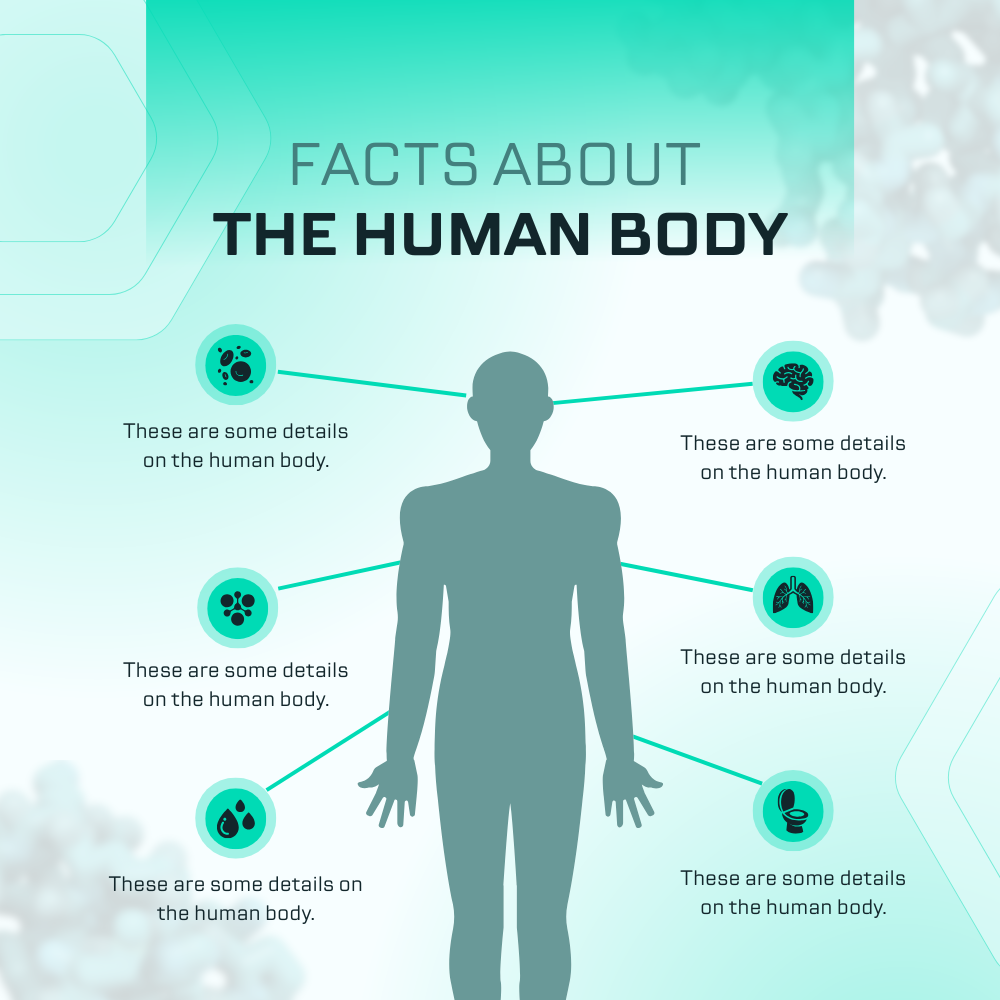The Human Microbiome: Your Body’s Invisible Ecosystem
Introduction
Imagine entering a rainforest and being surrounded by an abundance of life, color, and variety. Now, try to imagine that same ecosystem located inside your body. Your human microbiome means a busy world full of many organisms living throughout your body. They’re not hostile; the majority of them are helpful to you for your whole life and important for your well-being.
Let’s look at the biology behind your microbiome in this article: its nature, location, function, and the importance of caring for it for your health.

What Exactly Is the Human Microbiome?
The terms “human microbiome” or “body microbiome” are related to the numerous bacteria, viruses, and fungi that reside within you. They live on your skin, in your mouth, in your lungs, and most importantly, in your gut. There are so many microbes in your body that they exceed the number of human cells (though they’re still much smaller than those cells).
Some microbes may make us sick, but far more of them are neither harmful nor beneficial. They help break down your meals, shield you from dangerous viruses and bacteria, and affect your mood and the way your brain works. The gut is like an organ that works behind the scenes to ensure you are healthy.
How Best SEO Company is Helping Rajkot Businesses Thrive in the Digital Age
Where Do These Microbes Live?
Although there is a microbiome throughout your body, research has centered most on the gut microbiome in the large intestine. A huge range of microbes lives here, and they are quite active.
Below you’ll find the main types of microbes living within you.
- Gut: The gut helps digest your food, absorb nutrients, support your immune system, and influence your mood.
- Skin: Our skin helps eliminate dangerous bacteria and plays a role in healing any injuries we sustain.
- Mouth and Nose: The first thing in the body to stop airborne pathogens is the mouth and nose.
- Vagina: Vagina helps keep the pH normal and defends against infection.
- Lungs: There used to be the belief that lungs were free from bacteria, but it is now clear they have their microbial populations.
Different parts of the human body have their own groups of microbes, each well-suited to live where they are, just as animals vary in the desert or rainforest.
How Do We Get Our Microbiome?
Your body doesn’t start with all the microorganisms it needs. In fact, microbes enter your body right after you are born. During a vaginal birth, babies ingest their mom’s vaginal and intestinal bacteria, but babies born by C-section are more likely to pick up microbes from the outside world.
The composition of your microbiome is influenced by breastfeeding, your diet, your environment, and the use of antibiotics during this period. While by age 3 most people’s microbial balance is stable, it will keep changing as a person grows and their lifestyle changes.
Why the Microbiome Matters
We’re going to take a closer look at the different ways your microbiome is important for your health:
1. Digestion and Nutrition
They help decompose things such as carbohydrates, fibers, and starches that your body cannot digest without them. As a result, they generate SCFAs such as butyrate, which help to power the cells of your digestive tract and decrease inflammation.
They also help the body use nutrients such as calcium, magnesium, and some B vitamins. You wouldn’t enjoy all the health advantages of your meals without them.
2. Immune system
70% of your immune system is found in your gut, and your microbiome is essential in guiding it. It helps immune cells tell apart things that are okay from real forbidden substances, preventing both too many allergic reactions and too few defenses against infections.
The microbiome in your gut can filter good food you need and block harmful substances.
3. Mental Health and the Gut-Brain Connection
It turns out that the gut and brain are directly linked through what’s called the gut-brain axis. The gut microbes make serotonin, dopamine, and GABA, influencing both your mood and brain function.
The gut microbiome is thought by scientists to be linked to depression, anxiety, and even autism. That’s why some people call the gut a “second brain.”
4. Protection Against Disease
Scientists call a symbiotic microbiome the cause of several diseases.
- Obesity
- Type 2 diabetes
- Inflammatory bowel disease (IBD)
- Allergies and asthma
- Heart disease
- Certain cancers
- Neurodegenerative diseases like Parkinson’s
Looking at current studies, it is starting to be obvious that the balance of microbes in your gut plays a big part in your health over time.

What Disrupts the Microbiome?
Sadly, our busy modern lives often go against what our microbes need. Some of the most commonly recognized disruptors are explained below.
- Antibiotics: Antibiotics work to save lives, but they also destroy both harmful and helpful bacteria in the body, which might cause lasting imbalances.
- Highly Processed Foods: Foods filled with sugar, fat, and manufactured chemicals can decrease the range of good bacteria in our bodies.
- Stress: Chronic stress can alter the bacteria inside your gut and increase inflammation.
- Lack of Sleep and Exercise: Not getting enough sleep and exercise can affect the body’s immune and hormone systems, which are both related to microbial health.
- Over-sanitization: Cleanliness should not be extreme, as a too clean house can lower our exposure to helpful microbes.
How to Support a Healthy Microbiome
There’s good news here! What you eat and drink each day can help you support your microbiome. Here’s how:
1. Add more fiber to your meals.
Your gut microbes eat fiber the most. Try to use many kinds of fruits, vegetables, legumes and whole grains to support a diverse system and supply probiotics.
2. Trying fermented foods is a good idea.
Yogurt, kefir, kimchi, sauerkraut and kombucha are foods that contain probiotics, helping you add beneficial bacteria to your gut.
3. Don’t Take More Antibiotics Than Necessary
Antibiotics should only be used according to your doctor’s instructions and never when you have the flu or a cold.
4. Exercise Regularly
Being active helps your digestion and can also increase the number of different microbes in your gut.
5. Sleep for Lots of Hours
Your body’s microorganisms employ a circadian rhythm as well. Sleeping well at night helps your gut bacteria stay balanced.
6. Bear in mind that prebiotics and probiotics may play a role in your general health.
You can find probiotics in supplements, which are live bacterial formulas. Prebiotics are kinds of fibers that act as food for the useful bacteria living in your body, so foods like garlic, onions, bananas, and oats are rich in them. Food sources generally work better, yet both can be helpful.
Apart from this, I want share my experience with you about Nilkanth Dham Swaminarayan Temple Poicha, I had visited last month, this location is mesmerizing. So divine and well-maintained! It gives a same emotion that we experienced during our visit to the Mahakaleshwar temple in Ujjain. If you are visiting Gujarat or living in Gujarat you must visit it once in life.
The Future of Microbiome Science
There is still much more to understand about just how strong the human microbiome is. They are conducting studies on giving transplants of bacteria from the microbiome, creating probiotics based on a person’s needs, and using microbes from the gut to help treat cancer and autoimmune diseases.
It’s possible in the future that treatments, diets, and lifestyle choices can be created for your own microbiome profile. We now have medicine that is suited to each person, all made possible by microbes.
Conclusion
Although you can’t see it, your microbiome has a huge impact on your body. It breaks down what you eat, strengthens your body’s defenses, keeps your mood stable, and prevents illness. It does more than contain microbes; it’s an essential and active part of you.
If you ever have a salad or yogurt, keep in mind that you’re not just improving your own health. You’re helping lots of beneficial microorganisms that do essential work to protect your health.
If you respect them, they will look after you in return every single day.
About the Author
Article has been written by Manali.













